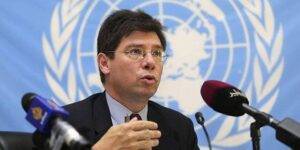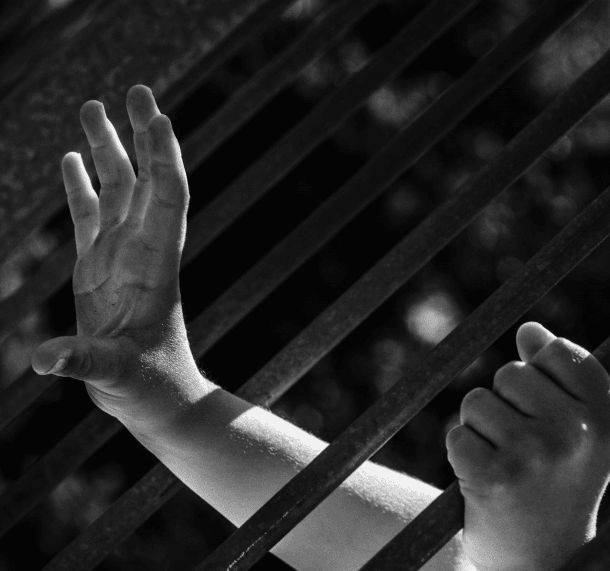MENA News Roundup October / November
This news roundup is a compilation of tweets made by the IDC Co-ordinator for the Middle East and North Africa Region. For live updates follow @IDC_MENA
Regional:
The “Protection at Sea” dialogue, led by UNHCR was attended by IDC
- Human rights protection challenges affecting migrants at sea
- Morocco highlights migration not a control/security issue but needs humanitarian approach
- Chief of Italian Navy says “Mare Nostrum was not a pull factor”
- IOM Monitoring Migrant Deaths in Three Recent Shipwrecks: Spain, Italy, Yemen
Egypt:
Editorial on civil society amoung fears of repression & silencing
Ethiopia:
Ethiopia sees spike in arrival of Eritrean refugees
Israel:
New immigration detention laws passed
Migrants hope PM will turn over new leaf as Tel Aviv residents file police complaint
Plan to fine African asylum seekers’ employers, making it harder for asylum seekers to find work & settle
Jordan:
Queries over border closure
Libya:
Ten migrants dead and dozens missing
Widespread & systematic torture creates huge need for rehabilitation
Human Rights Watch urges states to suspend returns to Libya
UN expert to the General Assembly - "migrants in detention are among the most marginalized"
 NEW YORK (25 November 2014) – During the UNGA’s 69th Regular Session, the Secretary General of the United Nations General Assembly, Mr. Ban Ki-moon, transmitted a report by the United Nations Special Rapporteur on the human rights of migrants, Mr. François Crépeau, concerning the role of the human rights of migrants in the Post-2015 Development Agenda and making a number of concrete recommendations regarding labour migration, irregular migration, and the use of criminalization and detention regimes by states in attempts to "manage" migration.
NEW YORK (25 November 2014) – During the UNGA’s 69th Regular Session, the Secretary General of the United Nations General Assembly, Mr. Ban Ki-moon, transmitted a report by the United Nations Special Rapporteur on the human rights of migrants, Mr. François Crépeau, concerning the role of the human rights of migrants in the Post-2015 Development Agenda and making a number of concrete recommendations regarding labour migration, irregular migration, and the use of criminalization and detention regimes by states in attempts to "manage" migration.
In his report (A/69/302), Mr. Crépeau highlighted that:
Migrants in an irregular situation, temporary migrant workers, migrant domestic workers and migrants in detention are among the most marginalized groups.
The Special Rapporteur called upon states to adopt relevant targets and indicators for a human-rights-based approach to migration policies and to squarely address how they will reduce the use and reliance on detention of migrants. Among others, he recommended that states regularly report on the:
- Reduction of the number of migrants in immigration detention;
- Proportion of migrant detention cases in which migrants were released into non-custodial alternatives to detention;
- Abolition of laws, policies and programmes that criminalize irregular migration;
- Time frame and coverage of policy on abolishing any form of detention of children on the basis of their immigration status or that of their parents;
The IDC welcomes and supports these recommendations from the Special Rapporteur. For more information, contact IDC Advocacy Coordinator, Ben Lewis ([email protected]).
Third Committee Adopts Resolutions on Migrant Children and the Rights of Migrants
 NEW YORK (25 November 2014) – The United Nations General Assembly adopted two important resolutions on the rights of migrants and migrant children during its 69th Regular Session. Passed through the Social, Humanitarian and Cultural Committee (Third Committee), the resolutions focused on Migrant children and adolescents and the Protection of migrants, respectively.
NEW YORK (25 November 2014) – The United Nations General Assembly adopted two important resolutions on the rights of migrants and migrant children during its 69th Regular Session. Passed through the Social, Humanitarian and Cultural Committee (Third Committee), the resolutions focused on Migrant children and adolescents and the Protection of migrants, respectively.
The resolution on Migrant children and adolescents (A/C.3/69/L.52/Rev.1) was sponsored by Algeria, Argentina, Bolivia (Plurinational State of), Brazil, Brunei Darussalam, Burundi, Chile, Costa Rica, Cuba, Ecuador, El Salvador, Guatemala, Haiti, Honduras, New Zealand, Nicaragua, Panama, Paraguay, Turkey, Uruguay and Venezuela (Bolivarian Republic of), and importantly adopted the 2012 Recommendation of the UN Committee on the Rights of the Child (para. 78) that:
“children, including adolescents, should not be subject to arbitrary arrest or detention based solely on their migration status”
The resolution encouraged States “to adopt alternatives to detention that take into account the best interests of the child, as a primary consideration, and respect the human rights of migrant children, including adolescents,” and reaffirmed that, “when exercising their sovereign right to enact and implement migration and border security measures, States have the duty to comply with their obligations under international law, including international human rights law, in order to ensure full respect of the human rights of migrant children”
The resolution also encouraged States to “promote national child and adolescent protection systems, in consultation with all sectors of society, including migrant communities, civil society organizations and other relevant actors.”
The Committee also took action on a resolution on the Protection of migrants (A/C.3/69/L.29/Rev.1), sponsored by Angola, Argentina, Armenia, Bolivia (Plurinational State of), Brazil, Colombia, Ecuador, Egypt, Guatemala, Honduras, Kyrgyzstan, Mali, Mexico, Nicaragua, Nigeria, Paraguay, Peru, Tajikistan, Turkey and Uruguay, approving it without a vote.
Among other things, the resolution:
(a) Calls upon all States to respect the human rights and inherent dignity of migrants, to put an end to arbitrary arrest and detention and, in order to avoid excessive detention of irregular migrants, to review, where necessary, detention periods and to use alternatives to detention, where appropriate, including measures that have been successfully implemented by some States;
(b) Calls upon States to put in place, if they have not yet done so, appropriate systems and procedures in order to ensure that the best interests of the child are a primary consideration in all actions or decisions concerning migrant children, regardless of their migration status, and to use, when applicable, alternatives to the detention of migrant children;
For more information, contact IDC Advocacy Coordinator, Ben Lewis ([email protected]).
Grupos conmemoran el 25° aniversario de la CDN mediante el llamado urgente de poner fin a la detención migratoria de niños, niñas y adolescentes
NUEVA YORK – Veinte y cinco años atrás la Convención sobre los Derechos del Niño de las
Naciones Unidas (CDN) fue aprobada y con ello el mundo entero hizo una promesa con la niñez: respetar sus derechos fundamentales, para promover su dignidad humana y salvaguardar el interés superior de los niños, niñas y adolescentes (NNA) en todas los actos que se lleven a cabo. Hoy, la CDN sigue siendo el tratado internacional de derechos humanos en toda la historia que cuenta con más ratificaciones que se han hecho de manera rápida y extensa. Solamente dos países, Somalia y los Estados Unidos, no han ratificado este célebre acuerdo.
A pesar de este compromiso universalmente aceptado, un sin número de millones de NNA continúan siendo afectados cada año por la ilegal, arbitraria y perjudicial detención migratoria. Ya sea porque ellos se encuentran detenidos o por los impactos negativos producidos en ellos por la detención de sus padres o tutores, niños migrantes son particularmente vulnerables a abuso y negligencia.
Muy a pesar de las razones que sean motivo para la detención o las causas para las condiciones en las que los NNA se encuentran, un número de estudios han demostrado que la detención tiene un profundo impacto negativo en la salud del niño y su correcto desarrollo. Incluso periodos cortos de detención ponen en riesgo el bienestar sicológico y físico del niño y comprometen su desarrollo cognitivo. Reportes sobre las consecuencias de la detención migratoria de niños, niñas y adolescentes han encontrado que existen altos índices de suicidio, de tentativas de suicidio, autolesiones, desórdenes mentales y problemas de desarrollo personal.
En conmemoración de 25avo aniversario de la CDN, la Campaña Global de Alto a la Detención de Niñ@s Migrantes y cientos de miembros y organizaciones aliadas a nivel mundial, hacen un llamado a los estados para poner fin a esta práctica de detener NNA por el hecho de no tener los pertinentes documentos migratorios. En lugar de ello, hacemos un llamado a los estados a implementar con urgencia alternativas sin-custodia, basadas en la comunidad que protejan integralmente los derechos de los niños.
El Comité de la CDN claramente ha especificado que la detención de niños en base al estado
migratorio de sus padres constituye una violación a los derechos de los niños, niñas y adolescentes.
[gview file="https://idcoalition.org/wp-content/uploads/2013/09/Press-Release_Groups-Commemorate-CRC25_es.pdf"]
IDC Press Release: Groups commemorate 25th anniversary of the CRC by urging end to child immigration detention
NEW YORK (20 November 2014) – Twenty-five years ago the UN Convention on the Rights of the Child (CRC) was adopted, and with it the world made a promise to children: to uphold their fundamental rights, to promote their human dignity, and to safeguard their best interests in all actions. Today, the CRC remains the most widely and rapidly ratified international human rights treaty in history. Only three countries, Somalia, South Sudan and the United States, have not ratified this celebrated agreement.
Despite this near-universal commitment, countless millions of children continue to be impacted every year by illegal, arbitrary and harmful immigration detention. Whether detained themselves or impacted by the detention of their parents or guardians, migrant children experience significant harm as a result of immigration detention practices. Regardless of the reasons for detention or the conditions in which children are held, a number of studies have shown that detention has a profound and negative impact on child health and development. Even very short periods of detention can undermine child psychological and physical well-being and compromise their cognitive development. Reports on the effects of immigration detention on children have found excessive rates of suicide, suicide attempts, self-harm, mental disorder and developmental problems.
In commemoration of the 25th anniversary of the CRC, the Global Campaign to End Child Immigration Detention and hundreds of member and partner organisations worldwide, are calling upon states to end the practice of detaining migrant children simply for the lack of proper immigration documents. Instead, we call upon states to urgently implement non-custodial, community-based alternatives that comprehensively protect the rights of children.
The UN Committee on the Rights of the Child has clearly stated that detention of children on the basis of their or their parents’ migration status is a child rights violation. In 2012, the Committee made a landmark recommendation that:
“Children should not be criminalized or subject to punitive measures because of their or their parents’ migration status. The detention of a child because of their or their parent’s migration status constitutes a child rights violation and always contravenes the principle of the best interests of the child.”
Worldwide, UN experts, child and human rights advocates, and governments are increasingly
recognizing that there is no justifiable reason for the immigration detention of children and families. Depriving a child of liberty on the basis of their or their parents’ migration status violates international law, but more importantly, it harms migrant children and families.
Today, in commemoration of the 25th Anniversary of the Convention on the Rights of the Child, we call upon states to protect the rights of migrant children in line with the recommendation of the Committee on the Rights of the Child by “expeditiously and completely ceasing the immigration detention of children. Together we can end child immigration detention.
For more information, visit www.endchilddetention.org.
Full release with recommendations available below.
[gview file="https://idcoalition.org/wp-content/uploads/2013/09/Press-Release_Groups-Commemorate-CRC25_en.pdf"]
CoE HR Commissioner names child immigration detention top challenge for Europe
STRASBOURG (20 November 2014) - Child immigration detention is a top challenge for child rights in Europe, said the Human Rights Commissioner for the Council of Europe, Mr. Nils Muižnieks, on 20 November 2014. In a Human Rights Comment to mark the 25th anniversary of the UN Convention on the Rights of the Child (CRC), the Commisisoner expressed concern that migrant children can still be detained in several COE member states solely on the basis of their or their parents' migration status.
“As recently highlighted by the Parliamentary Assembly of the Council of Europe, politicians are often pandering to rhetoric criminalising irregular migrants, including children, and immigration detention is therefore increasingly used in the member states. Although some countries prohibit the detention of migrant children, the ban is not always implemented in practice.”
Indeed, recent studies show that law and practice across Europe varies greatly in relation to child immigration detention. While 12 EU member states reportedly have laws prohibiting the detention of unaccompanied migrant children (UMC) below a certain age, UMCs are still detained in at least seventeen EU member states (European Commission 2014). It is legally possible to detain families with minor children in most EU member states except for Ireland (EMN 2014). But some countries such as Belgium, Spain and Italy reportedly do not detained families with minor children as a matter of policy.
The Commissioner pointed out that detention has long-standing harmful effects on children, undermining their physical and psychological well-being and development, even more so when they are separated from their parents.
“I strongly believe that migrant children, whether travelling alone or with their families, should never be detained.”
Instead, Commissioner Muižnieks recommended that:
- States should expeditiously and completely end immigration detention of children, as advocated by the UN Committee on the Rights of the Child and the International Detention Coalition.
- Alternatives to detention should be put in place, on the model of existing good practices. Some states, such as Belgium or Sweden, have developed alternatives which are more respectful of human rights, less costly, and which have also proven effective in ensuring compliance of the persons concerned with migration-related decisions. They include accommodation in open facilities in the community, supported by a system of individual supervision, possibly in conjunction with reporting or registration obligations.
The Commissioner’s recommendations echo those of the Committee of the Rights of the Child, which in 2012 called on states to “expeditiously and completely cease the detention of children on the basis of their immigration status.”
The Committee has further stated that states should develop alternatives that “allow children to remain with family members and/or guardians…and be accommodated as a family in non-custodial, community-based contexts while their immigration status is being resolved”. In Europe, this has been reiterated by the European Parliament (resolutions Feb and Nov 2014), Parliamentary Assembly of the Council of Europe (resolution October 2014).
Marking 25 years since the CRC, last month saw unprecedented global action calling on states to implement the CRC Committee’s recommendations. Spearheaded by the Global Campaign to End Child Detention, campaign activities were held in over 20 countries around the world, including in Europe:
- A conference on the rights of migrant children in Rome (flyer here);
- A campaign to end child detention in Poland: video and and national petition; plus the Global Campaign petition;
- A roundtable on the “open family locations” (alternative to detention for families with children in the Netherlands;
- IDC participated in a debate on the rights of children on Vatican Radio;
More info:
IDC Fact Sheet: Child Immigration Detention
IDC Research: Captured Childhood (2012)
Posted 1 December 2014
New Publication: 'The Law of Refugee Status'
 MELBOURNE (13 November 2014) - The University of Melbourne's Institute for International Law and the Humanities has launched a new publication today, The Law of Refugee Status, written by Michelle Foster and James C Hathaway.
MELBOURNE (13 November 2014) - The University of Melbourne's Institute for International Law and the Humanities has launched a new publication today, The Law of Refugee Status, written by Michelle Foster and James C Hathaway.
Michelle Foster is an Associate Professor, Associate Dean (Research) and Director of the International Refugee Law Research Research Programme in the Institute for International Law and the Humanities at Melbourne Law School.
James C Hathaway is the James E and Sarah A Degan Professor of Law at the University of Michigan, USA, a Distinguished Visiting Professor of International Refugee Law at University of Amsterdam, and a Professorial Fellow at the University of Melbourne.
Building on the strong critical focus and human rights orientation of the first edition, this second edition undertakes an entirely original analysis of the jurisprudence of leading common law and select civil law states. The authors provide robust responses to the most difficult questions of refugee status in a clear and direct way. The result is a comprehensive and truly global analysis of the central question in asylum law: who is a refugee?
For more information, visit the University of Melbourne Law School website or view a flyer for the book launch here.
Praise for the Book
“This edition of The Law of Refugee Status continues the leadership established by the first edition as the most cited scholarly work considered by courts internationally. It stands out for its principled approach to refugee law and for its comprehensive coverage of the pressing issues of jurispru- dence relating to forced global displacement.” – Justice Tony North, Federal Court of Australia, Past President, International Association of Refugee Law Judges.
Asia Pacific News Round Up November & October
This is a compilation of news from the tweets of the IDC Asia Pacific Regional Co-ordinator. Follow here for live news.
Australia
The Sydney Morning Herald reveals that less children are being held in immigration detention, but those that are in detention are being held for longer.
New campaign led by Australian celebrities calls for an end to child immigration detention:
Independent inquiry announced into sex abuse claims coming from immigration detention centres in Nauru, with civil society groups asking questions about the investigator credibility.
Bangladesh
Rohingya abducted and forced on boats, “horrifying new twist” in “systematic abuses” on them says Human Rights Watch.
Japan
Immigrant detention centres under scrutiny in Japan after fourth death this year, with calls for an urgent review to health care.
Malaysia
UN Special Rapporteur on the Right to Health visits Malaysia.
New Straight Times analyses the treatment of undocumented migrant workers
Parliament debated DAP’s motion on Al Jazeera’s report on refugees
155 Uighurs including 76 children in immigration detention, NGOs urge the government to work with UNHCR and not to forcibly deport this population.
Thailand
Squalid detention centres are no place for children, editorialises Alice Farmer.







